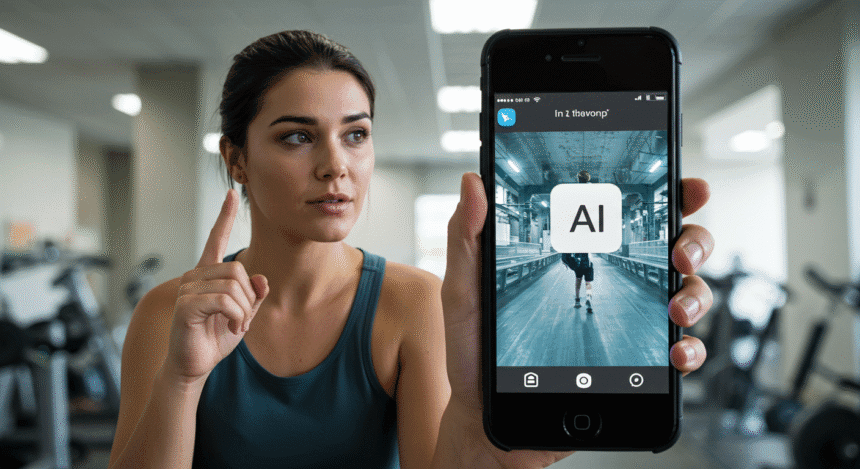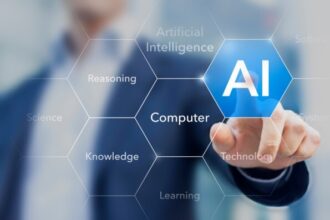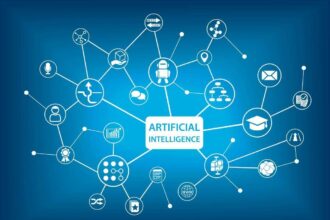AI has revolutionized so many aspects of our lives. ABC News author Roshni Verma states that one of its latest and biggest influences has been on the world of fitness. More and more people are now using AI fitness apps to help them plan their workouts.
With the explosion of artificial intelligence (AI), fitness apps, and wearable tech, many aspiring and current personal trainers are beginning to ask a serious question: Will AI eventually replace personal trainers altogether? And more broadly, is personal training still a viable career?
The short answer is no—but the full picture is more nuanced. While AI is certainly transforming how we track workouts and personalize health data, it’s not making the personal trainer obsolete. Personal training is still a viable career, with data suggesting the role of a PT is evolving—not disappearing. This is just one of the ways that AI is helping with the healthy data revolution.
The Rise of AI in Fitness
From smartwatches and apps to AI-generated workout plans, digital fitness tools have never been more advanced or accessible. These tools can count your reps, monitor your heart rate, recommend exercise plans, and even suggest what you should eat after a workout. Some apps use machine learning to adapt workouts based on your past performance, promising “personalised” experiences at a fraction of the cost of a PT.
According to a report by Statista, the global fitness app market is expected to surpass $30 billion USD by 2026, driven by consumer demand for on-the-go solutions. This understandably raises concerns for personal trainers who rely on one-to-one sessions, gym-based work, or even online coaching.
The Human Element: What AI Can’t Replace
While AI has made leaps in personalisation, there are still several key elements of fitness coaching that it simply cannot replicate:
- Emotional Intelligence—A good personal trainer understands not just what their client needs physically but also how they feel emotionally. Motivation, body image issues, stress, and fear of injury aren’t areas where AI can provide empathy or encouragement in real-time.
- Adaptability & Nuance – No algorithm can match a PT’s ability to instantly adapt a session based on how a client feels that day. Injury flare-ups, mood changes, and energy dips require human judgment.
- Accountability & Relationship – Many clients stick with their PT because of the relationship. They train harder, show up more consistently, and feel more supported. An app or chatbot can’t replicate that level of connection.
- Touch, Technique & Form Correction – Physical feedback still requires a human presence, whether it’s a gentle cue, a posture correction, or a hands-on movement demo.
What the Data Says About Career Outlook
The UK fitness industry continues to grow steadily. According to IBISWorld, employment in the personal training sector in the UK has increased by 5.4% annually over the past five years. The demand for face-to-face personal training remains particularly strong among older adults, busy professionals, and those with specialist needs (e.g. post-natal, injury rehab, mental health support).
Moreover, AI and fitness apps haven’t slowed this growth—they’ve expanded the potential audience. More people are becoming aware of fitness, tracking progress, and turning to human PTs when they hit a plateau or want tailored guidance.
How Personal Trainers Can Stay Relevant
Rather than being replaced, personal trainers are in a great position to leverage AI and tech to grow their careers:
- Use apps as tools – Incorporate tracking apps and wearables into your coaching to deliver a more data-rich experience.
- Offer hybrid coaching – Combine in-person and online sessions. You can scale your business, support remote clients, and still retain the human touch.
- Specialise – Clients are more likely to seek a human expert when they have specific goals: pre/post-natal fitness, sports performance, injury rehab, etc.
- Invest in CPD – Stay ahead by learning about new technologies, anatomy, nutrition, and coaching strategies. The more knowledge you have, the more value you offer.
Conclusion: AI Is a Tool, Not a Threat
AI is not here to replace personal trainers but to assist them. The real threat isn’t technology; it’s standing still in a fast-moving industry. Those who embrace innovation, remain client-focused, and develop specialised skills will find personal training not only viable but thriving.
For aspiring PTs, this is still a rewarding and growing career. And for current PTs, the future is bright—so long as you evolve with the times and never forget that human connection is at the heart of fitness.










